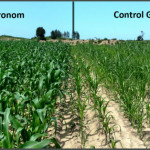Israel is a country in which military service is associated as much with advanced technology as it is with warfare. This is particularly true in the IDF’s Intelligence Corps, most notably Unit 8200, which is responsible for collecting signal intelligence and code decryption. Because so many 8200 veterans spend their army years thinking outside the box and wind up in the … [Read more...]
Archives for February 2015
Hebew University Company Reaches Agreement
Australia-based PhytoTech Medical has signed an exclusive licensing and collaboration agreement with Yissum, the technology-transfer company of the Hebrew University of Jerusalem, to develop, manufacture and market a novel delivery system to enhance the bioavailability of cannabidiol (CBD) and/or THC, the active ingredients in cannabis, for the treatment of a variety of medical … [Read more...]
Insomnia and Back Pain
If you suffer from insomnia, you are nearly one-and-a-half times more likely to experience back pain, according to a study published recently in the journal PLOS One by researchers at the University of Haifa. It is already known that people with a chronic inability to get a good night’s sleep have increased sensitivity to pain and greater odds of suffering from spontaneous … [Read more...]
Catching pneumonia before it kills
Two Israeli medical device concepts for easier diagnosis of pneumonia win Grand Challenges grants. Pneumonia kills more preschoolers than AIDS, malaria and measles combined. Image via Shutterstock UNICEF calls pneumonia “the forgotten killer of children.” This severe infection in the lungs causes more deaths in kids under five years old than AIDS, malaria and measles … [Read more...]
How To Grow Ample Food As Water and Farmland Dwindle?
Why did the giant Chinese conglomerate Shenyang Yuanda Enterprise Group purchase the little Israeli agri-tech startup AutoAgronom for $20 million? Two words: food security. This is one of the most pressing issues in the world as population spikes upward alongside a reduction in usable farmland and available water. Commercial farmers everywhere, including the world’s most … [Read more...]






